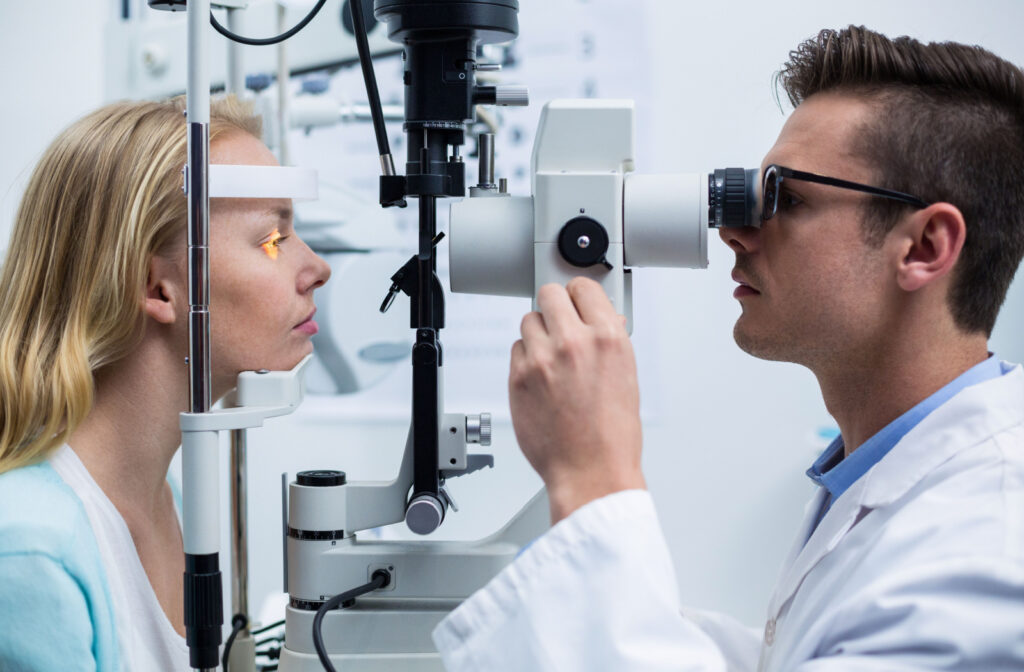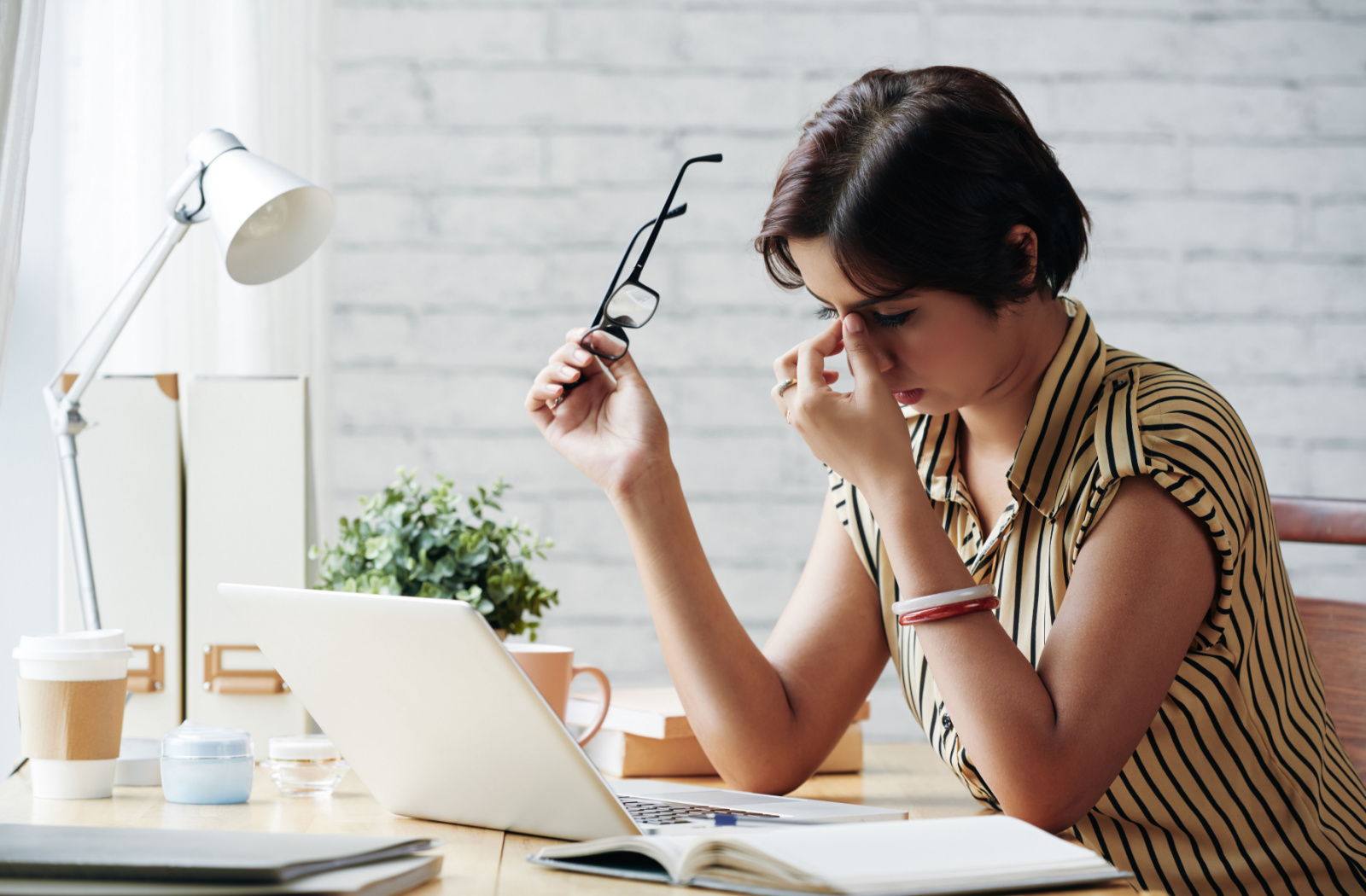One of the most common eye problems that people experience is dry eyes. It occurs when there is not enough lubrication in the eyes, causing discomfort and sometimes even vision problems. While there are many known causes of dry eyes, one possible factor that often gets overlooked is stress.
Stress can contribute to the development of dry eye symptoms. When a person is stressed, the body’s response can disrupt the balance of the tear film that protects the eyes. This disruption may lead to reduced tear production or increased tear evaporation, resulting in the uncomfortable symptoms associated with dry eyes.
Understanding Dry Eyes
Before delving deeper into the connection between stress and dry eyes, it’s essential to understand what exactly dry eyes are. The tear film in our eyes is made up of 3 layers—the mucus layer, the watery layer, and the oil layer. Each layer has a specific function that works to keep our eyes lubricated and healthy.
The mucus layer helps spread the tears across the surface of the eye, ensuring that they cover the entire eye. The watery layer is responsible for providing moisture and oxygen to the cornea, while the oil layer prevents the evaporation of tears from our eyes.
When any of these layers aren’t functioning correctly, it can lead to dry eyes. This condition is more prevalent in older adults and women due to hormonal changes, but it can affect people of any age or gender.
The Link Between Stress & Dry Eyes
Stress is a natural response to challenging situations, but when it becomes chronic or prolonged, it can have adverse effects on our bodies. One of these effects is the disruption of the tear film, leading to dry eye symptoms.
Chronic stress can cause changes in the nervous system, leading to decreased tear production and increased tear evaporation. Additionally, when we are stressed, our body releases a hormone called cortisol, which can also contribute to dry eye symptoms.
Managing Stress for Healthy Eyes
Managing stress effectively may help you maintain healthy eyes and prevent dry eye symptoms. Here are some tips to help you manage stress and keep your eyes lubricated:
- Identify the source of your stress. Understanding what’s causing your stress can help you find ways to address it or avoid it altogether.
- Practice relaxation techniques. Deep breathing, meditation, yoga, and mindfulness can all help reduce stress and improve overall well-being.
- Take breaks from digital screens. Too much time spent in front of digital screens can strain our eyes and contribute to dry eye symptoms. Take regular breaks, blink frequently, and adjust the lighting and contrast on your screen to reduce strain.
- Get enough sleep. Lack of sleep can increase stress levels and lead to dry eyes. Aim for 7–9 hours of quality sleep each night.
- Stay hydrated. Drinking enough water throughout the day can help keep your eyes lubricated and prevent dryness.
- Consider using artificial tears. If you’re experiencing dry eye symptoms, using over-the-counter artificial tears can provide temporary relief.
- Seek support. Talking to a trusted friend or family member or seeking professional counseling can help alleviate stress and improve your overall mental health.
- Make time for hobbies and activities you enjoy. Engaging in activities that bring you joy can help reduce stress and promote relaxation.
- Exercise regularly. Physical activity can help reduce stress levels and improve overall health, including eye health.
- Eat a healthy diet. A balanced diet rich in fruits, vegetables, and omega-3 fatty acids can help you maintain good eye health and reduce inflammation.
- Practice good eye hygiene. Keeping your eyelids clean and avoiding rubbing or touching your eyes can help prevent irritation and dryness.
- Use a humidifier. Dry air can contribute to dry eyes, so using a humidifier in your home or office can help add moisture to the air and prevent dryness.
- Take regular breaks during activities that require focused vision. Whether it’s reading, working on a computer, or driving, taking eye breaks every 20 minutes or so can reduce strain on your eyes and prevent dryness.
- Consult with an eye care professional. If you’re experiencing chronic dry eye symptoms, consult with an eye care professional for proper diagnosis and treatment. They may recommend prescription eye drops or other treatments to help manage your dry eyes.

Dry Eye Management at Perspectives Vision Clinic
While everyone experiences stress differently, it’s important to be aware of the potential connection between stress and dry eye symptoms. By taking proactive steps to manage stress and practicing good eye hygiene habits, you may be able to find relief for both things.
Remember, if your dry eye symptoms persist or worsen, it’s best to consult with an eye doctor for personalized advice and treatment options. At Perspectives Vision Clinic, we offer comprehensive eye care services, including dry eye management. Our team of experienced optometrists can help diagnose and treat your dry eyes, and provide tips for preventing future flare-ups. Take control of your eye health today by scheduling an appointment with us.










